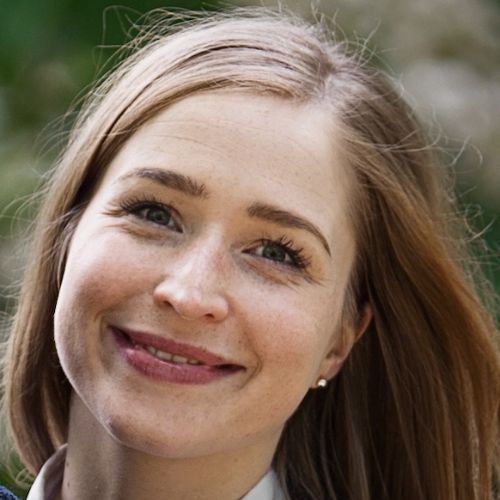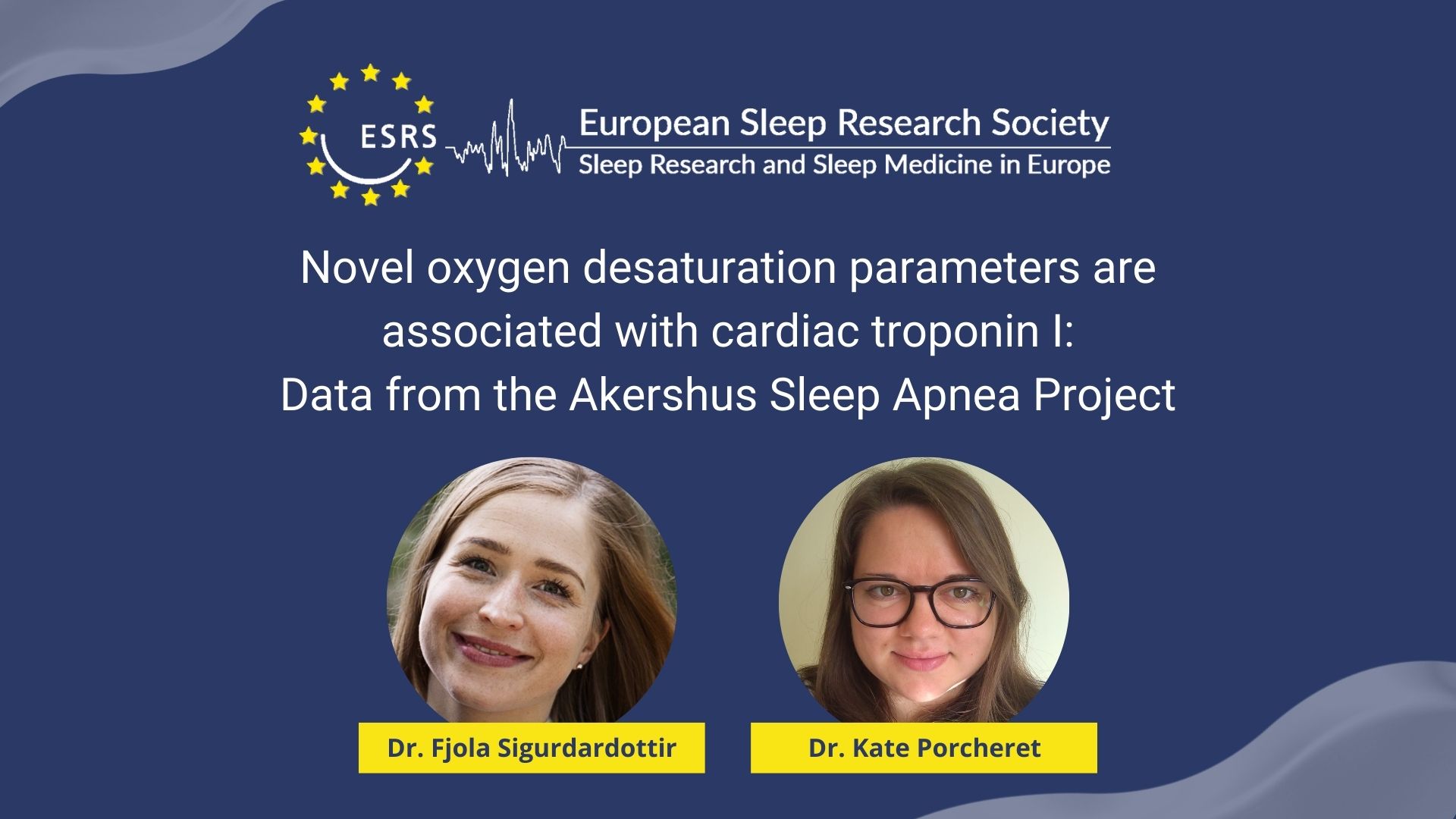Novel oxygen desaturation parameters are associated with cardiac troponin I

Dr. Fjola Sigurdardottir
Medical Doctor & Researcher, Department of Cardiology, Akershus University Hospital, Norway
Fjola Sigurdardottir and colleagues recently published a paper looking at different cardiac troponins and their association with oxygen saturation in obstructive sleep apnoea (OSA) patients, “Novel oxygen desaturation parameters are associated with cardiac troponin I: Data from the Akershus Sleep Apnea Project”. Dr. Kate Porcheret from the ESRS’s Digital & Communications Committee sat with her to discuss their work further.
This paper was born out of an interest to look at novel desaturation parameters, as more (and better) parameters of OSA are needed to predict adverse outcomes.
Cardiac troponins are sensitive and specific markers of myocardial injury and were used as a surrogate endpoint to look at the association between novel desaturation parameters and cardiac troponins, and seeing whether these new desaturation parameters for OSA were any better than the apnoea-hypoxia index (AHI) in predicting higher subclinical myocardial injury.
Using data from the Akershus Sleep Apnoea Project, 498 participants who had valid sleep measurements, and/or cardiac troponin measurements were included in the current study.
Looking at the re-scored polysomnography’s for novel desaturation parameters was done first, to determine whether the new obstructive sleep apnoea parameters were associated with cardiac troponins because it is known from previous studies that there have been reported associations between apnoea-hypopnea index and cardiac troponins.
Secondly, they wanted to compare these novel parameters with the apnoea-hypopnea index to see if there was any difference in how well they predicted higher subclinical myocardial injury.
To find out more on the results of the study, watch the entire interview below and read the entire publication here.
ESRS Reminders
2023 ESRS Grants & Fellowships
2023 Sleep Medicine Examination
2023 Sleep Science School
The theme of the fourth edition of the ESRS Sleep Science School to be held in Frejus, France, 24-29 September 2023 will be REM Sleep. The Chairs are currently working on the programme to be published in early 2023. The most up to date information can be found on the ESRS website.
Sleep & Breathing 2023 – Registration Open
Recent publications from ESRS members
- Alfonsa et al. (2022). Intracellular chloride regulation mediates local sleep pressure in the cortex. Nat Neurosci.
- Devine et al. (2022). Psychomotor Vigilance Performance in Participants with Excessive Daytime Sleepiness in Obstructive Sleep Apnea or Narcolepsy Compared with SAFTE-FAST Model Predictions. Neurol Ther.
- Kunz et al. (2022). Long-Term Safety and Tolerability of Daridorexant in Patients with Insomnia Disorder. CNS Drugs.
- Pizza et al. (2022). Multidisciplinary care of patients with narcolepsy during coronavirus disease 2019 pandemic in Italy via televisit: the TElemedicine for NARcolepsy feasibility study. Sleep.
- Pack et al. (2022). SLEEP: Next Steps. Sleep.
- Baumert et al. (2022). Sleep characterization with smart wearable devices: a call for standardization and consensus recommendations. Sleep.
- Schmidt & Bassetti (2022). Gender differences in narcolepsy: What are recent findings telling us? Sleep.




